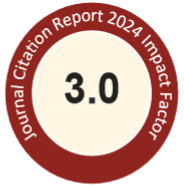Keywords
Gut microbiota, Metabolic disorder, Obesity, Sulphated polysaccharide, Ulva prolifera
Abstract
Obesity is characterized by metabolic disorder and accompanying an altered and less diverse gut microbiota composition during a fat-enriched diet. Recent studies indicated that sulphated polysaccharide prevents high-fat diet (HFD) induced obesity, reduces metabolic disorder, and restores the gut microbiota. However, there are few studies about Ulva prolifera polysaccharide (UPP) may induce anti-obesogenic effects. Therefore, the present study investigates the enzymatic extracted UPP effects in HFD-fed mice. The results showed that UPP considerably slowed down the HFD-induced weight gain and improved metabolic disorders in HFD-fed mice. Notably, the effects were associated with lower body weight gain, reduced adipose tissue hypertrophy, triglyceride concentration in liver and systemic low-grade inflammation, and improved fasting blood glucose. Moreover, our result reveals that UPP may elevate the expression of AMPK via adiponectin activation. Interestingly, we found that UPP may induce PPARα agonist to enhance β-oxidation since the elevation of CPT-1 and PPARα expression simultaneously. Meanwhile, gut microbiota analysis revealed UPP promoted the growth of Parasutterella, Feacalibaculum, and Bifidobacterium, and reduced the abundance of Acetatifactor, Tyzerella, Ruminococcus_1, and Desulfovibrio. The changes in microbiota may have a positively correlated effect on improving obesity and metabolic abnormalities. UPP may prevent HFD-induced obesity and associated metabolic diseases, as well as modulate the composition of gut microbiota to facilitate the growth of probiotics.
Recommended Citation
Pung, Hai-Ching; Lin, Wei-Sheng; Lo, Yi-Chen; Hsu, Cheng-Chih; Ho, Chi-Tang; and Pan, Min-Hsiung
(2022)
"Ulva prolifera polysaccharide exerts anti-obesity effects via upregulation of adiponectin expression and gut microbiota modulation in high-fat diet-fed C57BL/6 mice,"
Journal of Food and Drug Analysis: Vol. 30
:
Iss.
1
, Article 5.
Available at: https://doi.org/10.38212/2224-6614.3395
Creative Commons License

This work is licensed under a Creative Commons Attribution-Noncommercial-No Derivative Works 4.0 License.
Included in
Food Science Commons, Medicinal Chemistry and Pharmaceutics Commons, Pharmacology Commons, Toxicology Commons


Abstract Image